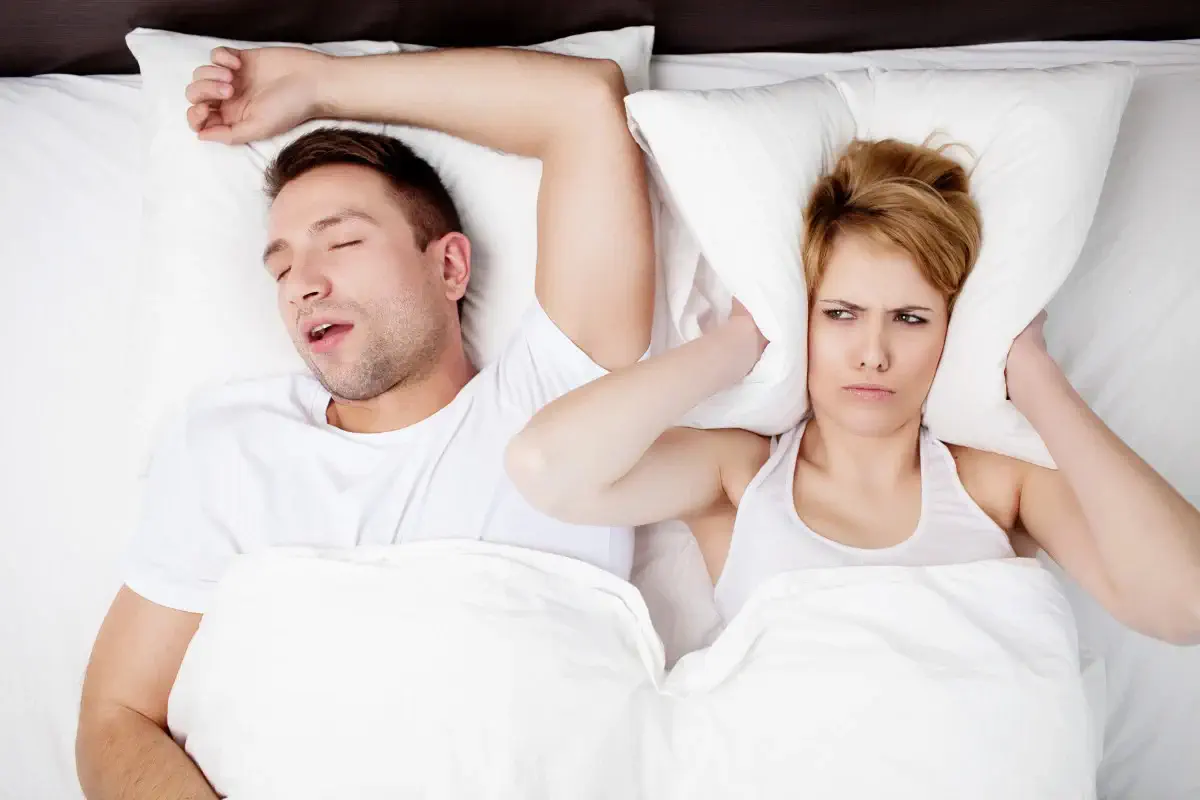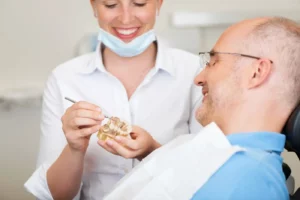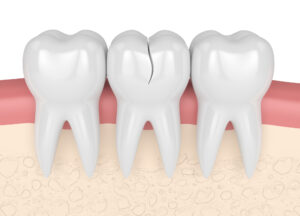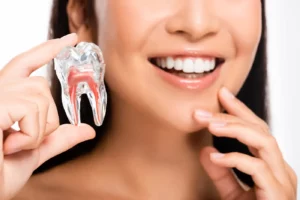Sleep apnea affects over 22 million Americans, many of whom are unaware their bodies struggle to breathe at night. Despite sleep apnea being linked to various health conditions, many people refuse to seek treatment because they find CPAP machines too uncomfortable.
But did you know dentists also treat sleep apnea? Using a non-intrusive oral device, you can treat sleep apnea without a CPAP machine and find relief from your symptoms.
Seeing your dentist for sleep apnea symptoms
Most people who have sleep apnea aren’t aware of it. That’s because its most obvious symptom, snoring, is hard to detect for patients when they are asleep. That means becoming aware of sleep apnea’s other symptoms is crucial.
Sleep apnea symptoms
- Choking or gasping
- Dry mouth and sore throat upon waking
- Headaches in the mornings
- Daytime fatigue
- Trouble remembering
- Frequent nightmares
- Mood swings and irritability
- Loud snoring
If you notice any of these symptoms, make an appointment at your local dental clinic to speak with a dentist. Left untreated, sleep apnea can lead to high blood pressure, heart failure, headaches, increased risk of stroke, depression, and even worsening ADHD symptoms.
Oral device alternative to CPAP machine
50% of those who use a CPAP find it intolerable and discontinue its use, meaning they don’t get the treatment they desperately need. Oral devices, custom-made to a patient’s teeth, are a comfortable and non-intrusive way to treat sleep apnea symptoms.
This has many benefits over the CPAP machine. It’s more comfortable for patients, easier to use, and portable. Oral devices for sleep apnea can also be made in less time than what it would take for patients to undergo sleep studies and wait for a CPAP machine.
For patients seeking fast relief and treatment they can realistically stick to long term, oral devices offer an effective alternative.
How does oral appliance therapy work?
Dentists begin by taking a mold of your teeth. The mold is sent to a lab where a custom device is made for maximum comfort and ease of use. The result is something inconspicuous and no bigger than your typical retainer.
It works by shifting the lower jaw and tongue forward to open the airway and allow for uninterrupted breathing when asleep. It’s a simple yet effective way to treat mild airway obstructions and curve the adverse effects sleep apnea causes.
Sleeping with an oral device is a lot easier than learning to sleep with a CPAP. You don’t have to deal with masks, tubing, and power cords, so you can continue your treatment wherever you go.
Sleep apnea treatment in Denver, CO
Visit Artistic Dental, your local dental clinic for sleep apnea evaluation in Denver, CO.
Schedule an appointment to see a dentist and learn if oral application therapy is right for you





